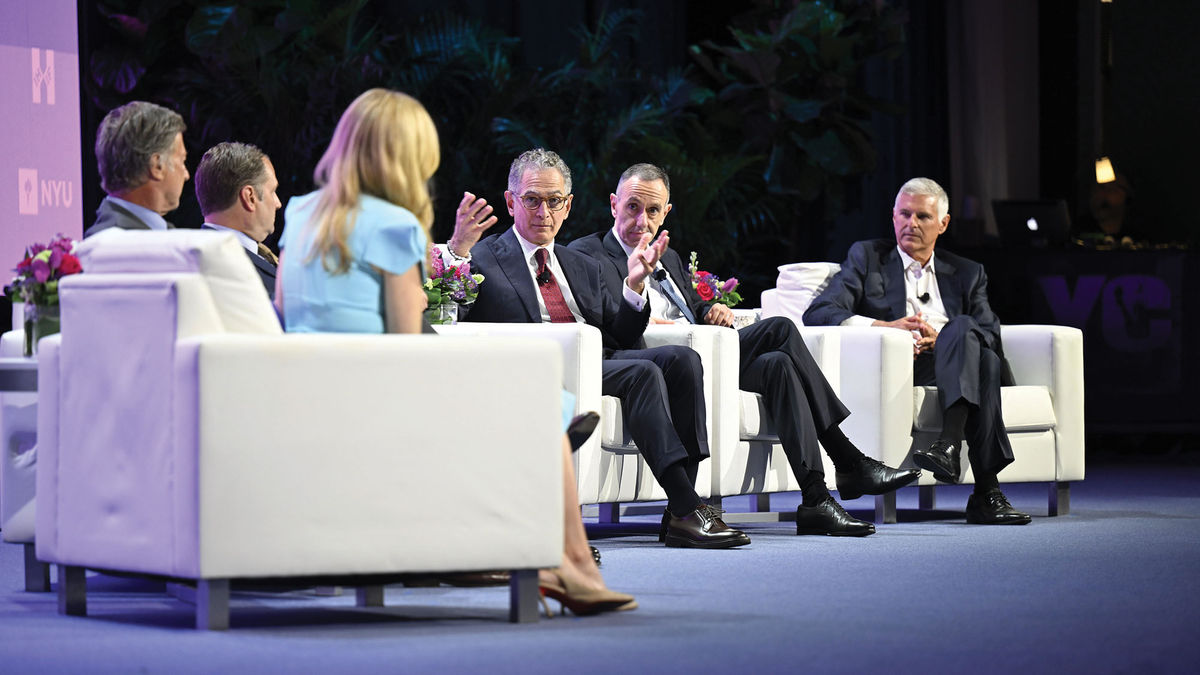NEW YORK — The leisure travel boom may be starting to cool, but a surge in demand from business travelers and groups is picking up the slack, said hotel CEOs at the NYU International Hospitality Industry Investment Conference on Monday.
Hyatt Hotels Corp. CEO Mark Hoplamazian said Hyatt is “still growing in leisure, but off a very high base of the last two years compounded. But this year, the big change is business travel.”
Hyatt’s corporate accounts are up 12% for the year through April, Hoplamazian said, while the business travel segment is up 6% year over year.
“Business travel is back, and it’s on a steady rise,” declared Hoplamazian. “We haven’t seen one month go by where we don’t see positive year-on-year growth.”
Amid business travel’s steady comeback, Marriott International CEO Anthony Capuano proclaimed that groups are the industry’s strongest-performing segment. He said group clients are asking if they can book five to seven years in advance to get the dates, space and cities they want.
Accor CEO Sebastien Bazin told attendees that the company had managed to secure “significant” rate hikes during its annual renegotiations with global corporate accounts.
Hilton CEO Christopher Nassetta pointed to relatively scarce new hotel supply as another driver of pricing power.
“There’s not enough money in the system in terms of new development getting funded right now,” said Nassetta, who predicts that the industry is likely to remain in “a super-cycle” of historically low supply growth over the next few years, while demand continues to grow.
Capuano added that lending for new construction has shrunk considerably, “causing us all to duke it out for every conversion that presents itself.”
And as far as conversions go, IHG Hotels & Resorts CEO Elie Maalouf said that some developers aren’t afraid to think outside the box.
“It’s forcing us to be creative,” said Maalouf, citing one potential project involving the possible redevelopment of a “highly under-occupied” office building in the heart of New York.
“Converting [offices] to hotels can cost an enormous amount of money,” said Maalouf. “Office hotels are not easy at all. But as demand [remains strong], it can make sense to do it.”











